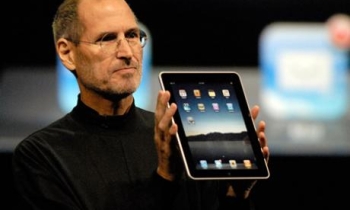Terry Semel, Yahoo Inc.'s chief executive, fired a few salvos at high-flying Google Inc. Thursday, saying the rival Internet company has a scattered strategy and an array of products whose popularity lags behind those of his own Web portal.
"So far, they don't seem to have a plan, but maybe they do," Semel said of Google at the Web 2.0 Internet conference in San Francisco. "Maybe magic will happen tomorrow."
Semel's remarks come amid a flurry of new initiatives by Google to expand beyond its roots as a search engine. Over the past year, the Mountain View company has released features including instant messaging, Internet telephone calling, e-mail, video downloads and personalized home pages.
Google's leadership in search won praise from Semel. But he added that Google is morphing into a Web portal like Yahoo and should be evaluated as such. "From where we sit, it's starting to look more and more like a portal," Semel said. "As a portal, they would probably be rated No. 4."
Semel made no comment about who leads the portal wars, although Sunnyvale's Yahoo, Microsoft's MSN and Time Warner's AOL are the likely candidates. Each has huge audiences built around communities, entertainment and communications, areas Google has only recently entered.
Semel stressed that Google's narrow focus in search gives it only around 5 percent of total online page views. With a broader set of offerings, Yahoo's users spend more time on its Web site, giving the company a greater opportunity to sell advertising.
Asked to respond to Semel's comments, Lynn Fox, a Google spokeswoman, said: "We appreciate recognition of Google's leadership in search. It's a highly competitive industry, and that ultimately benefits users."
On other topics, Semel outlined his vision for Yahoo as a 21st century media company that will create some of its own entertainment content and rely on others for the rest.
But he added that instant hits -- which Hollywood demands new shows should be -- aren't as important on the Web. The success of Yahoo's new products, he said, should be measured over several years. "In television, you had to have a hit overnight," Semel said. "Not online."
Yahoo is slowly evolving to suit the broadband age, in which an increasing number of users will be watching video on the Internet. The company has moved its entertainment division to Santa Monica, putting former ABC television executive Lloyd Braun at the helm.
Last month, Yahoo started an online video news broadcast in war zones, reported by journalist Kevin Sites. It also announced a string of new financial columns that will be written by influential authors. More such media initiatives are expected.
Semel also touched on the moral ambiguities of doing business in China. He made the case that Yahoo has little choice but to follow the laws of the countries in which it operates, regardless of how much he disagrees with them.
Human rights advocates routinely criticize Yahoo for censoring the news stories on its Web site critical of the Chinese government. Recently, Yahoo turned over user information to the Chinese government as part of an investigation into a Chinese journalist, who was later jailed.
"Sometimes, on a personal level, I wince," Semel said. "But those are the laws." He disagreed with suggestions by Yahoo critics that it pull out of China. Reducing Western influence, he said, is not the way to change a nation's legal system.
Lucie Morillon, Washington representative for Reporters Without Borders, a free speech advocacy organization, said Yahoo should disregard Chinese law and instead follow international values. To bolster their case for more legal latitude, she said, Western companies should negotiate with the Chinese government as a group, not individually.
E-mail Verne Kopytoff at vkopytoff@sfchronicle.com.









